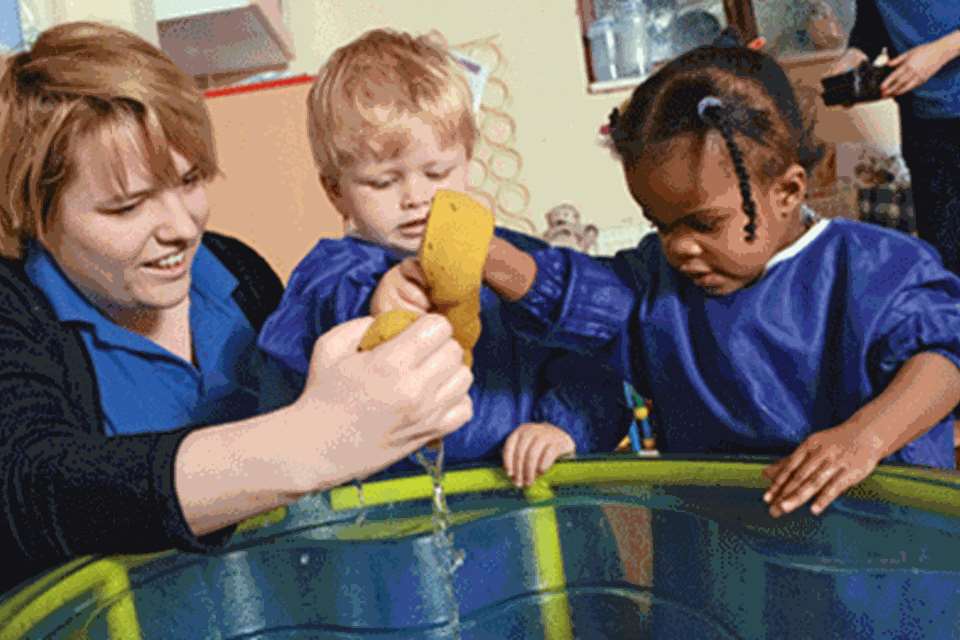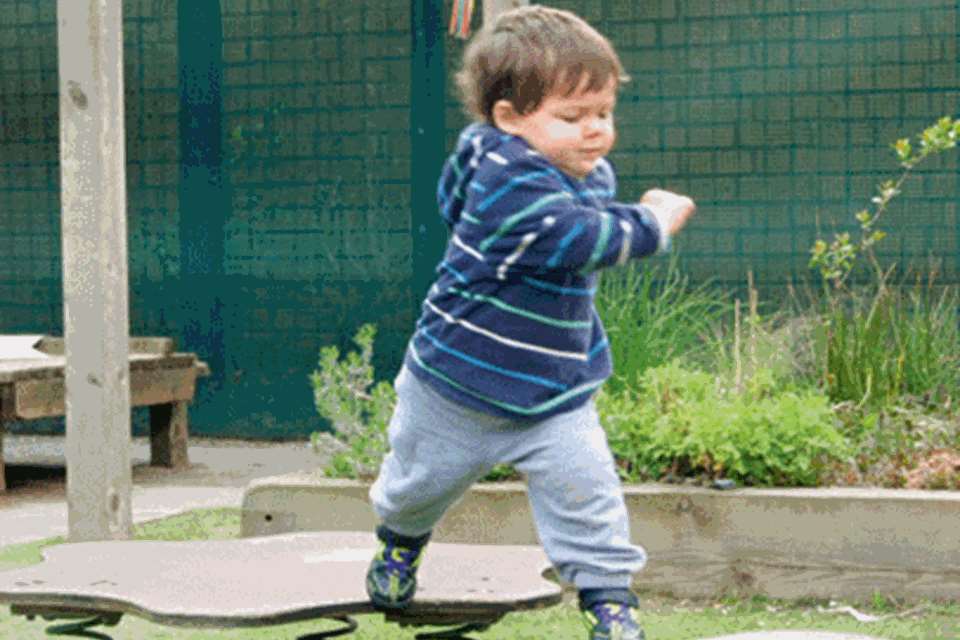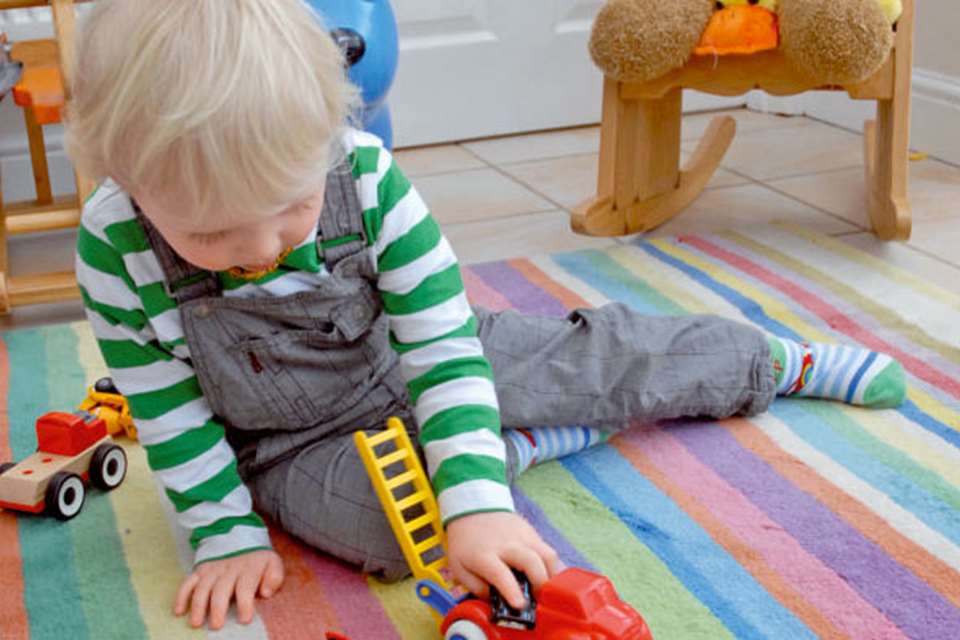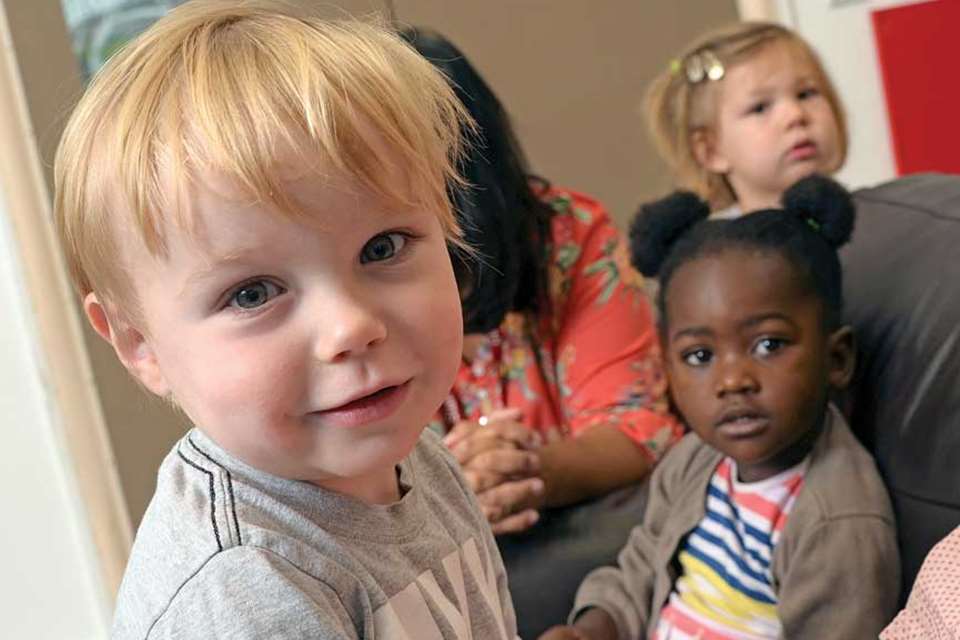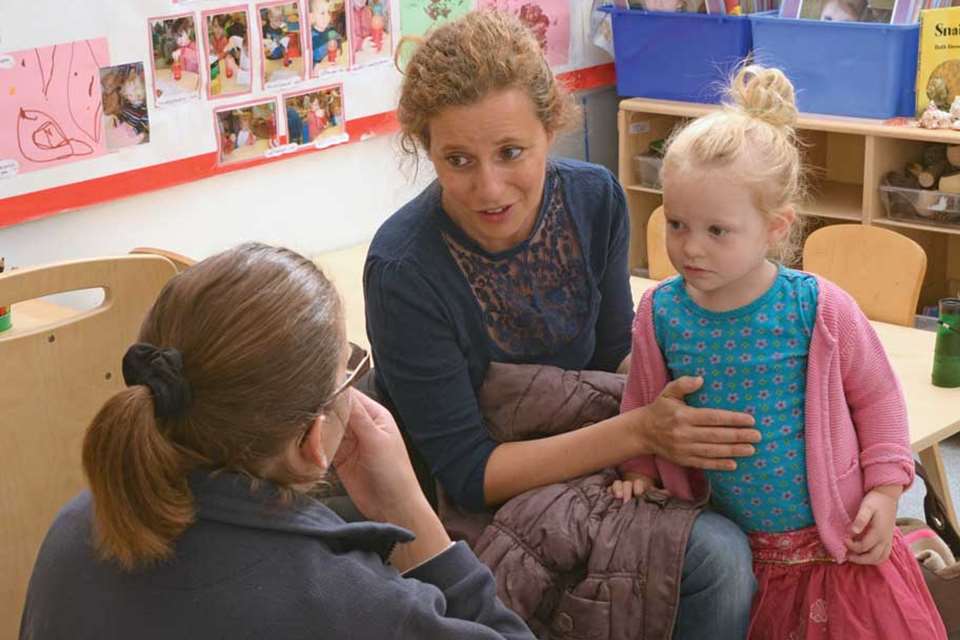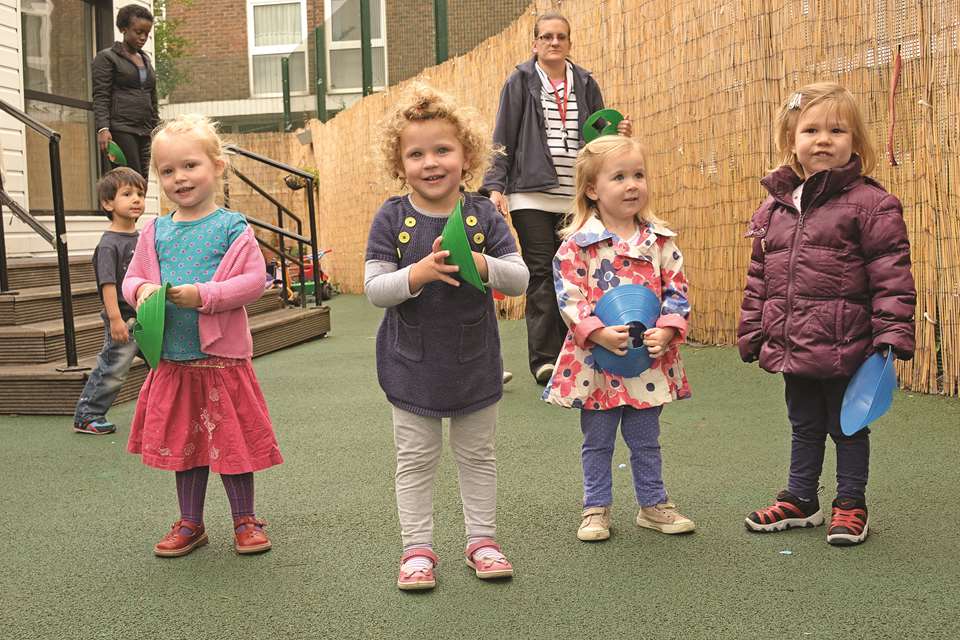Learning & Development: Progress Check at Two: Part 5 - Small steps
Sue Chambers
Monday, January 27, 2014
In this case study, Sue Chambers focuses on assessing physical development for the Progress Check at Age Two, and deals with difficult conversations that may form part of some evaluations.
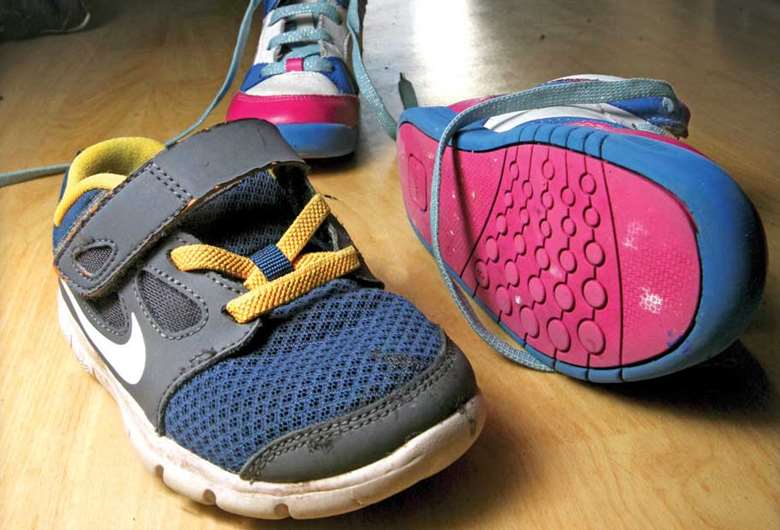
Daniel was admitted to the nursery aged two years four months for three morning sessions. There were no concerns flagged up by his mother about his physical development. She did say that he was a fussy eater, but other than that felt he was progressing well. She said they had been living in temporary accommodation for more than six months with no promise of somewhere more permanent.
It was immediately noted by Daniel's key person that he was very boisterous, running around shouting, but that he seemed to trip, fall and bump into things quite often. He had difficulty in staying still and fidgeted more than the average two-year-old.
His fine motor control was poor, using a palmar grasp to draw and unable to use a spoon to eat, preferring to use his fingers. He also had difficulties chewing and there were concerns about his speech and language development. Overall, Daniel's physical developmental outcomes were in the bands of 8-20 months or the low end of 16-26 months.
The key person asked the Special Educational Needs Co-ordinator (SENCo) to observe Daniel. The SENCo was concerned that Daniel appeared to be showing signs of developmental dyspraxia, sometimes called 'clumsy child syndrome' and that he would need to be assessed by a paediatric team.
Signs of dyspraxia in very young children can include:
- delay in reaching developmental milestones
- difficulty performing physical activities such as climbing stairs, hopping and jumping, when compared to others of the same age
- difficulty chewing solid food
- difficulty with pincer grasp and holding a pencil/drawing
- difficulty performing daily activities and self-care tasks
- taking longer to acquire new skills
- falling over a lot or appearing clumsy
- problems grasping concepts of 'on', 'in', 'in front of', etc
- difficulty establishing relationships and with social behaviour
- anxiety or agitation
- delayed language development or problems with speech.
If indeed Daniel were to be diagnosed with dyspraxia, the sooner he received appropriate interventions the better. In the meantime, the key person gave Daniel lots of opportunities to develop his fine and gross motor and communication skills, with a high level of adult support and praise for his efforts. However, without a diagnosis at this stage, it was unknown whether his delayed skills were due to the condition or a lack of experience and opportunity.
BUILDING RELATIONSHIPS
Daniel's key person found it quite difficult to build a relationship with his mother. She did not willingly engage in conversation, preferring to drop Daniel off at nursery and leave as quickly as possible. She was not interested in talking to other parents or joining them at coffee sessions. There had been no information passed to the nursery before Daniel's admission, except that the family met the funding criteria. The nursery checked and found that a GP was the only professional involved with the family.
Trying to discuss concerns about Daniel's development with a parent who was unwilling to communicate was going to prove challenging, yet this was something that had to be done urgently. The key person asked Daniel's mother to come in to talk with her about Daniel's progress. But although numerous appointments were made, she failed to attend. A meeting was finally arranged, but Daniel's mother said she could only spare a few minutes.
The key person took her to a room away from the children, made coffee and biscuits, and talked to her about the positive aspects of Daniel's development and time at nursery - how he had settled well, his favourite activities and how he had begun to make friends. She then talked about his progress in PD and CL and asked whether the mother had any concerns.
The mother's response was both aggressive and defensive: there was nothing wrong with Daniel and the nursery was being unfairly critical. And were they implying she was a bad mother? She ended by saying she would remove him from the nursery.
Tact and patience were required. The key person allowed the mother to say what she wanted without becoming annoyed. Calmly, she said that she was sorry that Daniel would be leaving, how he was a delightful little boy, how he was beginning to make friends and how tough it must be living with a small child in temporary accommodation with no promises of somewhere more suitable.
The nursery wanted to help her and Daniel in any way they could and by working together they could help to resolve some of her problems. It was at this point Daniel's mother stated to cry, saying she felt herself to be a useless mother, that she and Daniel were living in a single room and that she felt too depressed to make any changes to their lives.
The conversation went well over the promised few minutes and gave the key person a real insight into the family circumstances. By the end of the meeting, she had persuaded Daniel's mother to go through the Common Assessment Framework (CAF), with the promise that it would enable many levels of support for both Daniel and his mother to be implemented.
The outcome of the CAF was to prioritise the family's need for more appropriate housing and for a multi-disciplinary paediatric assessment of Daniel's needs. A referral to Home-Start was made and a volunteer worked with the family. Daniel and his mother were invited to Homestart events. As there was no outdoor space where Daniel could play at home, his mother was persuaded to attend mother-and-toddler drop-in sessions at the local children's centre.
Meanwhile, the nursery continued a programme of high level one-to-one and small-group support to develop Daniel's fine and gross motor skills. His mother was encouraged to stay and play and to join other mothers for coffee. She was offered ideas of things she could do with Daniel at home to help to develop his fine motor and communication skills, and lent or given resources she could use.
There was no overnight miracle; she continued to be somewhat needy and the key person ensured she was given time and encouragement. The hostility decreased as trust grew. Daniel's assessment showed he did have some signs of developmental dyspraxia and he was given speech and language and occupational therapy.
The long-term outcome was that within a few months Daniel and his mother were rehoused to a two-bedroom maisonette and Daniel transferred to a nursery closer to his new home. He was assessed by a paediatrician, occupational and speech therapist, and educational psychologist and diagnosed with developmental dyspraxia. Appropriate support and strategies were introduced. At his Progress Check at Age Two, Daniel was not yet reaching his developmental milestones, but was making progress appropriate to his needs.
WHAT TO ASSESS: PHYSICAL DEVELOPMENT
The Early Years Outcomes 2013 document sets out what you should be observing a child doing in PD between 22 and 36 months if they are developing typically for their age.
Moving and handling
- Runs safely on whole foot.
- Squats with steadiness to rest or play with object on the ground, and rises to feet without using hands.
- Climbs confidently and is beginning to pull themselves up on climbing equipment.
- Can kick a large ball.
- Turns pages in a book.
- Shows control holding and using jugs to pour, hammers and mark-making tools.
- Begins to use tripod grip to use writing tools.
- Imitates drawing simple shapes such as circles.
- Walks upstairs or downstairs holding a rail, two feet to a step.
- May be showing preference for dominant hand.
Health and self-care
- Feeds self competently with spoon.
- Drinks well without spilling.
- Clearly communicates their need for potty or toilet.
- Beginning to recognise danger and seeks support of significant adults for help.
- Helps with getting dressed.
- Beginning to be independent in self-care, but still often needs adult support.
PD AND ITS LINKS TO OTHER ASPECTS
In your assessments, bear in mind how PD links to other aspects of learning.
The Tickell Review of the Early Years Foundation Stage (2011) notes: 'Physical development supports personal, social and emotional development... promoting growth in confidence and awareness of control. It supports communication and language because a child who can effectively use the large movements, gestures and the fine movements involved in speech is able to convey messages to others.'
Introduction to Physical Activity in the Early Years from the British Heart Foundation sets out how PD links to:
Cognitive 'thinking'
Creativity - discovery, experimentation, developing imagination, thinking in different ways; problem-solving skills, thinking critically and making choices.
Health and well-being
Strong bones, muscles, heart and lungs; feeling well and energised; healthy weight; establishing good physical activity habits early on.
Physical development
Stamina; strength; mobility; stimulating important brain connections; motor skills.
Personal, social and emotional outcomes
Fair play; co-operation; language and communication; confidence; enjoying achievements; resilience; sense of self-belief;
valuing oneself; behavioural flexibility - adapting emotionally to new situations.
MORE INFORMATION
Dyspraxia Foundation, www.dyspraxiafoundation.org.uk
Early Movers: helping under-5s live active and healthy lives (2011), British Heart Foundation, www.bhf.org.uk/teachers
Move with Me leaflets for different ages and stages, including two to three, www.surreycc.gov.uk
NHS physical activity guidelines for children (under 5 years), www.nhs.uk/Livewell/fitness/Pages/physical-activity-guidelines-for-children.aspx


